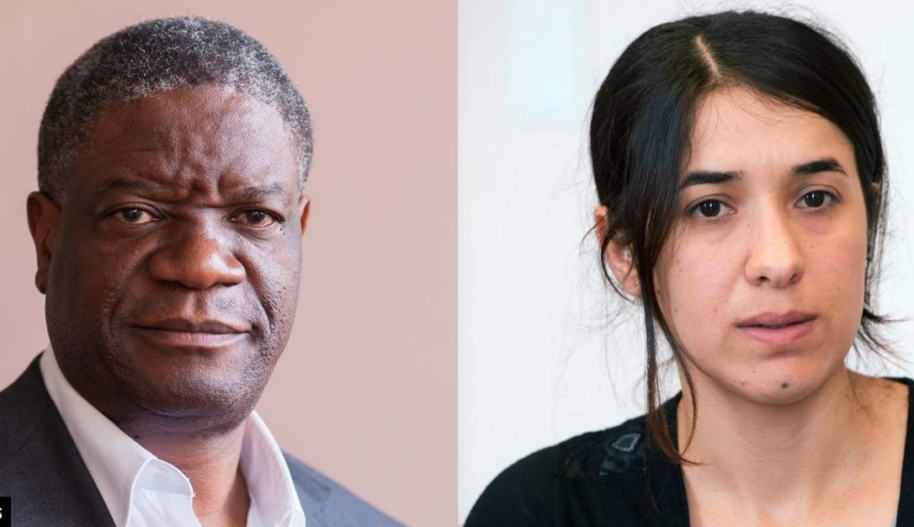In response to news that Congolese doctor Denis Mukwege and Yezidi human rights activist Nadia Murad have jointly won the 2018 Nobel Peace Prize, Amnesty International’s Secretary General Kumi Naidoo said:
“Warmest congratulations to Denis Mukwege and Nadia Murad for this recognition of their courageous work standing up for the victims of sexual violence in conflict. They are beacons of hope in a world where rape and other forms of sexual violence continue to be a frequent and horrific feature of wartime attacks, often used to brutalize, silence and spread fear.
“We understand Denis Mukwege was in surgery when the announcement was made, which is testament to his unshakeable dedication to treating women and girls in his hospital. Under his compassionate care, thousands of survivors of rape and sexual violence in eastern DRC have overcome their physical injuries. Despite facing an assassination attempt and attacks against his family, Denis Mukwege continues to campaign tirelessly against sexual violence in conflict. He is a remarkable champion of human rights.
“Nadia Murad’s brave testimony before the United Nations has laid bare the unimaginable horrors faced by Yezidi women and girls held captive and sexually enslaved by the so-called Islamic State in Iraq, and shows that those who survived sexual violence and other abuse will not be silenced or ignored. Her demand for justice gives hope to survivors and instils the importance that their tormentors are held to account for the crimes under international law committed against them.”
Background:
Dr Denis Mukwege is the founder and medical director of Panzi Hospital in Bukavu, eastern Democratic Republic of Congo. His dedication to survivors of sexual violence in South Kivu is well-known to the Congolese people and the human rights community. He has won dozens of awards, including the UN Human Rights Prize in 2008, for his work with survivors of sexual violence in South Kivu.
Denis Mukwege has been a long advocate for the rights of women in DRC. He has also been threatened several times by armed groups for denouncing rape. His family have also come under attack. On 25 October 2012, he found armed men threatening his children with guns and narrowly escaped being shot as gunmen opened fire on him, killing one of his security guards.
In 2015, Nadia Murad appeared before the UN Security Council to speak about her experience of being abducted and sexually enslaved by the armed group calling itself Islamic State (IS) in Iraq. Since then she has made repeated calls for crimes committed by IS to be investigated and prosecuted. In 2016, at the age of just 23, Nadia Murad was named the UN’s first Goodwill Ambassador for the Dignity of Survivors of Human Trafficking.
This year marks a decade since the UN Security Council adopted Resolution 1820 (2008). The resolution reiterated the obligations on states to take special measures to protect women and girls in armed conflict, and to hold perpetrators to account for genocide, crimes against humanity, and war crimes including those relating to sexual and other violence against women and girls. This is also set out in the Rome Statute of 1998, which governs the work of the International Criminal Court.













